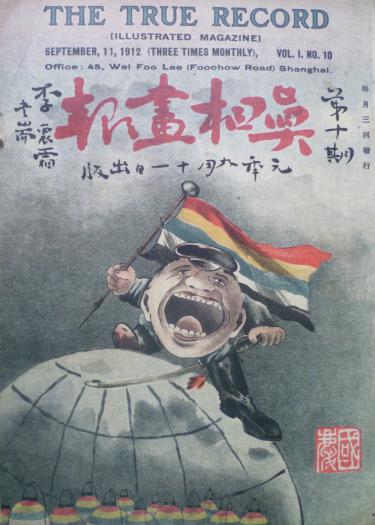Centre for Asian and Transcultural Studies Sankofa: Radical Millenarianism and Post-apocalypticism in African American Religious Historiography in the Atlantic World
- Donnerstag, 5. Dezember 2024, 14:30 - 16:00 Uhr
- Centre for Asian and Transcultural Studies (CATS), 010.01.05 (CATS Auditorium), Voßstraße 2, 69115 Heidelberg
- Dr Aaron Pride, Lafayette College (USA), Oechsle Center for Global Education
This lecture provides a survey of the scholarship on the literature of millennialism, apocalypticism, and post-apocalypticism in African American religion. It aims to establish a criterion and understanding of the occurrence of radical millenarian belief in African American Christianity from the 19th century to the 20th century, arguing that African American Christianity produced a militant millennial movement in the early 20th. This lecture also asserts that we can identify a black militant millennial tradition that spans across two centuries from the slave insurrections of Denmark Vesey, Gabriel Prosser, and Nat Turner to William Monroe Trotter’s civil rights activism in the early 20th century. In making the case for the importance and existence of a black militant millennial tradition, it also asserts that this millennial tradition included a substantive vision of the post-apocalyptic world that for black militant millennialists of the 19th century comprised a world devoid of racial slavery, while militant millennialists of the 20th envisioned a post-apocalyptic world that repudiated racial segregation and discrimination.

Address
Centre for Asian and Transcultural Studies (CATS)
010.01.05 (CATS Auditorium)
Voßstraße 2
69115 HeidelbergOrganizer
Event Type
Series of events
Talk
All Dates of the Event 'Apocalypse Now. Time, Historicity and Worlds After'
Lecture Series
While periodization — the partition of time into segments with a specific beginning and end — is integral to historical method, it cannot be dissociated from a wider reflection on a key issue: the relation between emic time (time as perceived by historical actors) and etic time (time as established by the scholar’s historical narrative). The relation between emic and etic times is an essential methodological question within human, social, and even natural sciences. This lecture series looks at this this question through a particular lens: the “end of times” or “apocalypses.” How do historical actors perceive it? What happens to historiographical narratives when actors talk about the future as the “end” of time? How has such a vision of the future shaped narratives and periodization schemes?
By focusing on “ends of times” and “apocalypse”, the tensions between time, temporalities and time horizons are to be discussed, both methodologically and empirically, in specific contexts. The three main areas are: 1) political history — the history of revolutions; 2) religious history — the history of last judgements and revelations; and 3) natural history — the history of pandemics, cataclysms and disasters. The first block (political history) will discuss the link between revolution and the end of time, starting with revolutions at the turn of the eighteenth and nineteenth centuries, including the Russian and Chinese revolutions. The second block (religious history) will consider perceptions of the end of time within some of the main religions, considering different takes on apocalyptic revelations, universal floods, millenarianisms and messianic movements. Finally, the third block (natural history) will discuss natural disasters and epidemics, and will feature the controversies over geological eras (such as the Anthropocene) and collapsology.